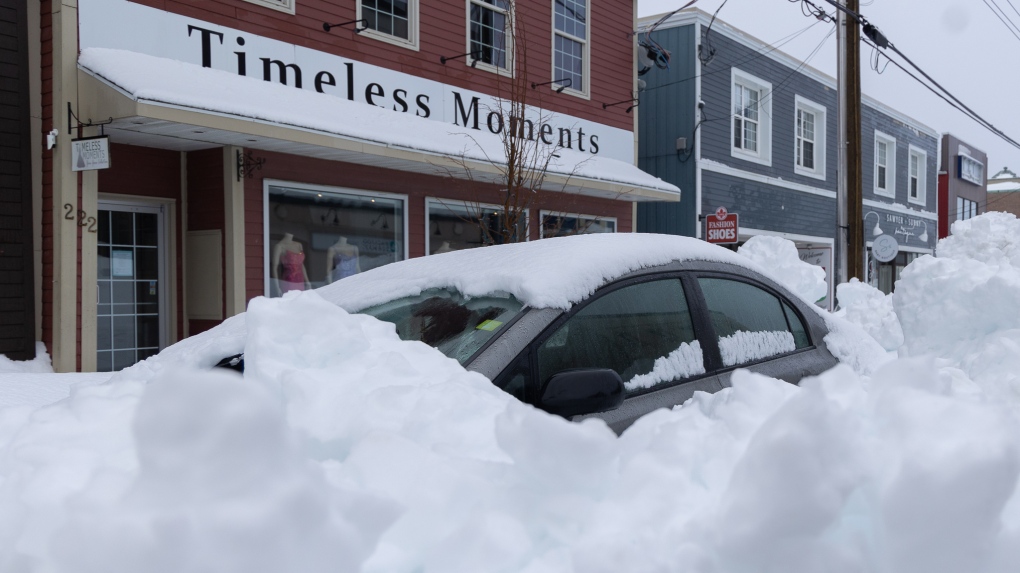
As planet warms, ferocious snowfalls like the one that hit Nova Scotia could increase
CTV
Forecasters say a warming global climate could actually cause some parts of Canada to see colder conditions, including heavy snowfalls like the one that hit parts of the Maritimes this week.
Forecasters say a warming global climate could actually cause some parts of Canada to see colder conditions, including heavy snowfalls like the one that hit parts of the Maritimes this week.
There's a direct relationship between the temperature of the atmosphere and how much water it can hold, said Judah Cohen, a research affiliate at the Massachusetts Institute of Technology, who works as a director of seasonal forecasting at Verisk Atmospheric and Environmental Research.
"It's like a sponge. If the atmosphere is very warm, it could hold a lot of moisture," he said. "You put all the water in the sponge. And then as you slowly lower the temperatures, it's like squeezing the sponge, and so all the water comes out of it," he said.
Beginning Friday, the sponge got squeezed as a stalled low-pressure system off Nova Scotia's coast dumped up to 150 centimetres of snow in parts of Cape Breton, prompting local states of emergency and a call from the province for federal help in digging out.
About 20 or 30 years ago, Cohen said, the consensus in the scientific community was that a warming world would result in less snow. But now it is believed climate change could lead to more intense snow and rain, he said.
John Clague, a professor of geosciences at Simon Fraser University in Burnaby, B.C., said ocean temperatures in the North Atlantic have increased in recent years, allowing temperate air masses along Canada's East Coast to hold more water vapour. When this moisture-laden warm air comes into contact with arctic air, "crazy" amounts of snow fall, he said.
"In my view, it's another example of extreme weather that may have the fingerprint of climate change on it," he said of the recent Nova Scotia storm.





















 Run 3 Space | Play Space Running Game
Run 3 Space | Play Space Running Game Traffic Jam 3D | Online Racing Game
Traffic Jam 3D | Online Racing Game Duck Hunt | Play Old Classic Game
Duck Hunt | Play Old Classic Game